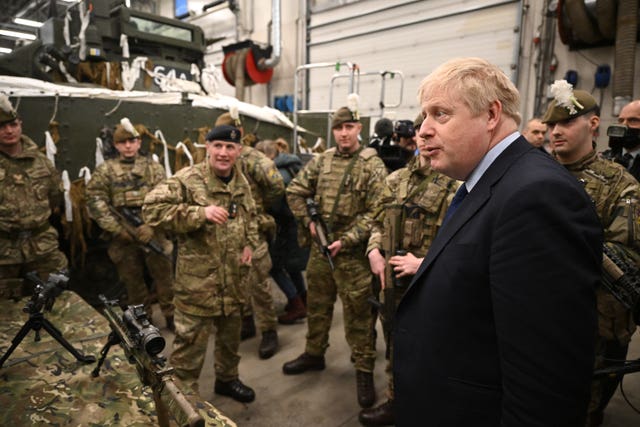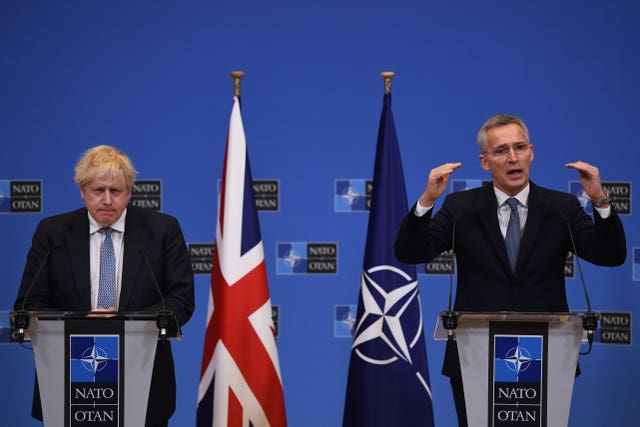Nato: the western alliance which protects the security of Europe
The North Atlantic Treaty Organisation was founded in the aftermath of the Second World War.

The Russian missile strike on a Ukrainian military base close to the border with Poland has raised new fears that Nato could be drawn into the conflict.
– What is Nato?
The North Atlantic Treaty Organisation is a military alliance founded in the aftermath of the Second World War primarily to counter the threat posed by the Soviet Union.
It initially comprised 10 European states – including the UK – plus the United States and Canada and was intended to bind the US to the defence of Europe.

– What is Nato’s purpose?
Under Article 5 of the founding North Atlantic Treaty – signed in April 1949 – an attack on one member state is treated as an attack on all and requires other members to come to their assistance.
Since the 2014 Wales summit, alliance members have been formally committed to spending at least 2% of national income on defence.
– What happened to Nato after the Cold War?
Following the fall of the Berlin Wall in 1989 and the subsequent break-up of the Soviet Union in 1991, Nato agreed significant military reductions while seeking better relations with the former communist states of central and eastern Europe.

The move has led to tensions with Russia which believed it contravened assurances given to president Mikhail Gorbachev that there would be no eastward expansion of the alliance.
– Has Article 5 ever been invoked?
Just once, after the 9/11 terror attacks on the Twin Towers in New York and the Pentagon in Washington in 2001.
It saw troops deployed to Afghanistan under the Nato-led International Security Assistance Assistance Force (Isaf).
Prior to that, Nato was involved in the conflicts in Bosnia and Kosovo following the break-up of the former Yugoslavia and in 2011 it enforced a no-fly zone over Libya.

Nato insists it is a purely defensive alliance and does not represent a threat to Russia or to anyone else.
However President Putin has long chafed at its expansion into areas which Russia has traditionally regarded as falling within it sphere of influence.
He has pushed for the draw back of forces from eastern Europe and has been particularly exercised at the prospect that Ukraine could eventually be admitted.





